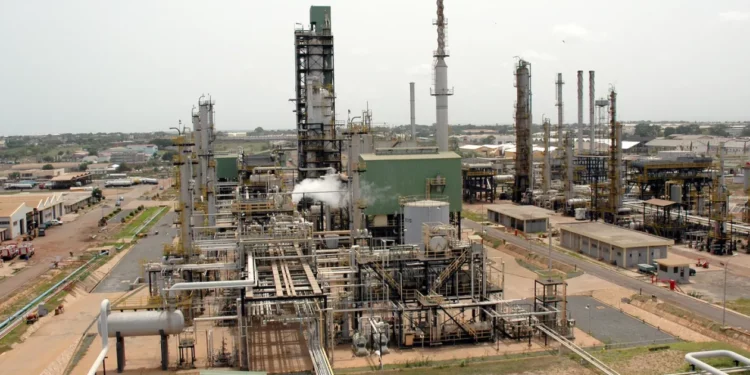IMANI-Africa’s Kofi Bentil demands withdrawal of controversial TOR asset lease amid transparency concerns
In a move that has stirred up controversy and raised questions about transparency, the planned lease of assets belonging to Ghana’s Tema Oil Refinery (TOR) has come under intense scrutiny. Reports have emerged suggesting that the Public Procurement Authority (PPA) is set to lease the state-owned oil refinery to Torentco Asset Management (TAM) for a period of six years. However, this deal has drawn the ire of IMANI-Africa Vice President, Kofi Bentil, who is demanding its immediate withdrawal.
In a recent interview on TV3, Bentil voiced strong opposition to the agreement, asserting that it lacks transparency and fails to deliver value for money for the Ghanaian government. “Our problem with this particular deal is that it is totally opaque,” he stressed. “We have to go underground and find out all kinds of ways on the documentation and the deal is bad.”
Bentil further expressed concerns about the lack of clarity surrounding the true identities of the directors involved in the transaction. He claimed that their identities appear to be fronts for other individuals, casting doubt on the legitimacy and integrity of the agreement. “It is unfortunate and we hope that is clarified,” he added.
Having personally reviewed the details of the agreement between the Public Procurement Authority and Torentco Asset Management, Bentil outlined the key areas of concern. While he expressed support for the divestment of Tema Oil Refinery, he emphasized the importance of transparency throughout the process. Bentil stressed the need for interested parties to reveal their intentions, demonstrate their financial capabilities, and provide adequate security measures to safeguard against potential setbacks. Drawing attention to the lessons learned from previous controversies, such as the Power Distribution Services (PDS) debacle, he underscored the necessity of ensuring that Ghana does not suffer further financial losses.
In light of these issues, the prominent legal practitioner called on the government to make the entire contract governing the divestment of the distressed refinery transparent. Bentil’s demand for transparency echoes the sentiments of many who believe that open and accountable governance is vital for Ghana’s economic stability and growth.
The concerns surrounding the Tema Oil Refinery are not isolated incidents. Minister of Energy, Dr. Matthew Opoku Prempeh, recently lamented the operational losses incurred by TOR, highlighting how over GH¢2.5 million could not be accounted for in crude oil sales. These revelations, coupled with ongoing calls for the sale of TOR, have led experts to attribute the annual revenue losses to mismanagement. Benjamin Boakye, the Executive Director of the African Center for Energy Policy (ACEP), has previously pointed out that the fundamental problem plaguing TOR is poor management, with politically appointed individuals prioritizing personal gain over the refinery’s success.
While there is a growing consensus regarding the need to divest the troubled refinery, Bentil has underscored the critical importance of transparency throughout the process. Any potential sale must be conducted in a manner that ensures the utmost clarity, accountability, and adherence to best practices. The implications of a mismanaged transaction could be far-reaching, and Ghana cannot afford to repeat past mistakes.
The demand for transparency in the TOR asset sale highlights the broader issue of governance and accountability in Ghana’s energy sector. It serves as a reminder that public assets must be managed with utmost care and diligence to maximize their potential benefits for the country and its citizens. Only through transparent processes, robust checks and balances, and the involvement of reputable stakeholders can Ghana safeguard its interests and ensure a sustainable and prosperous future.








